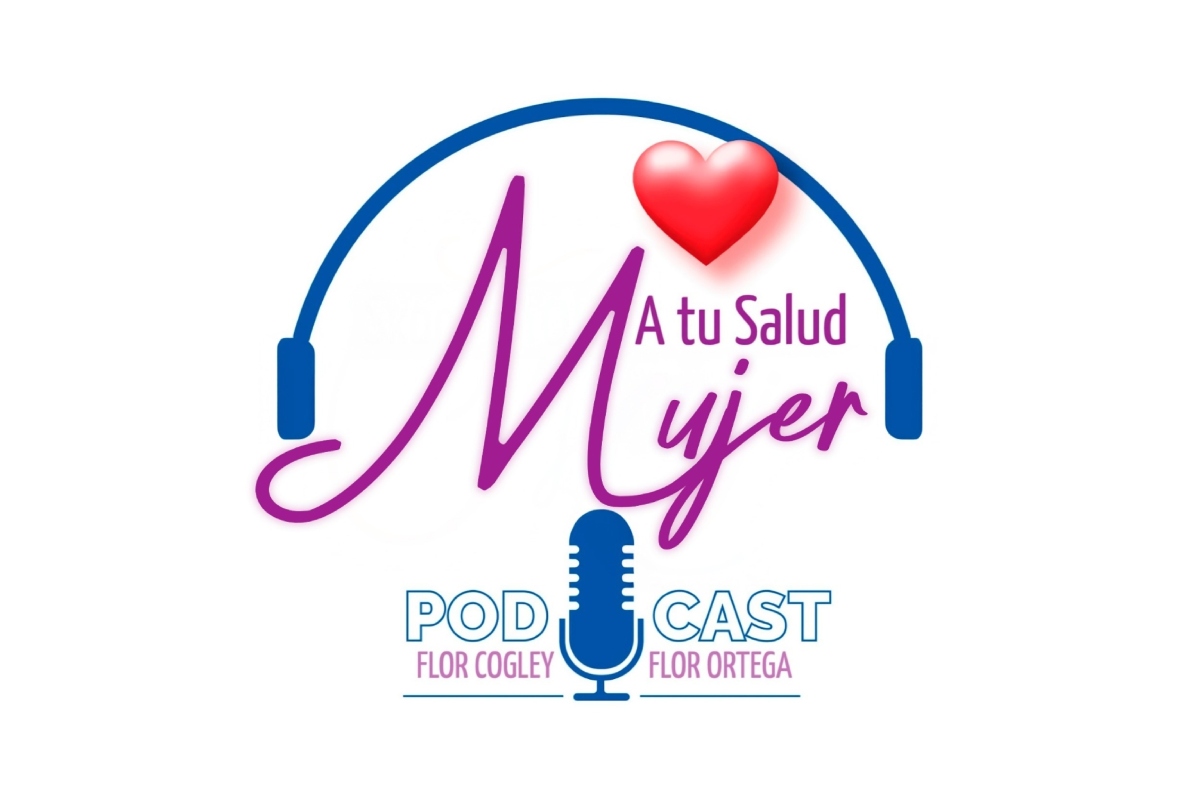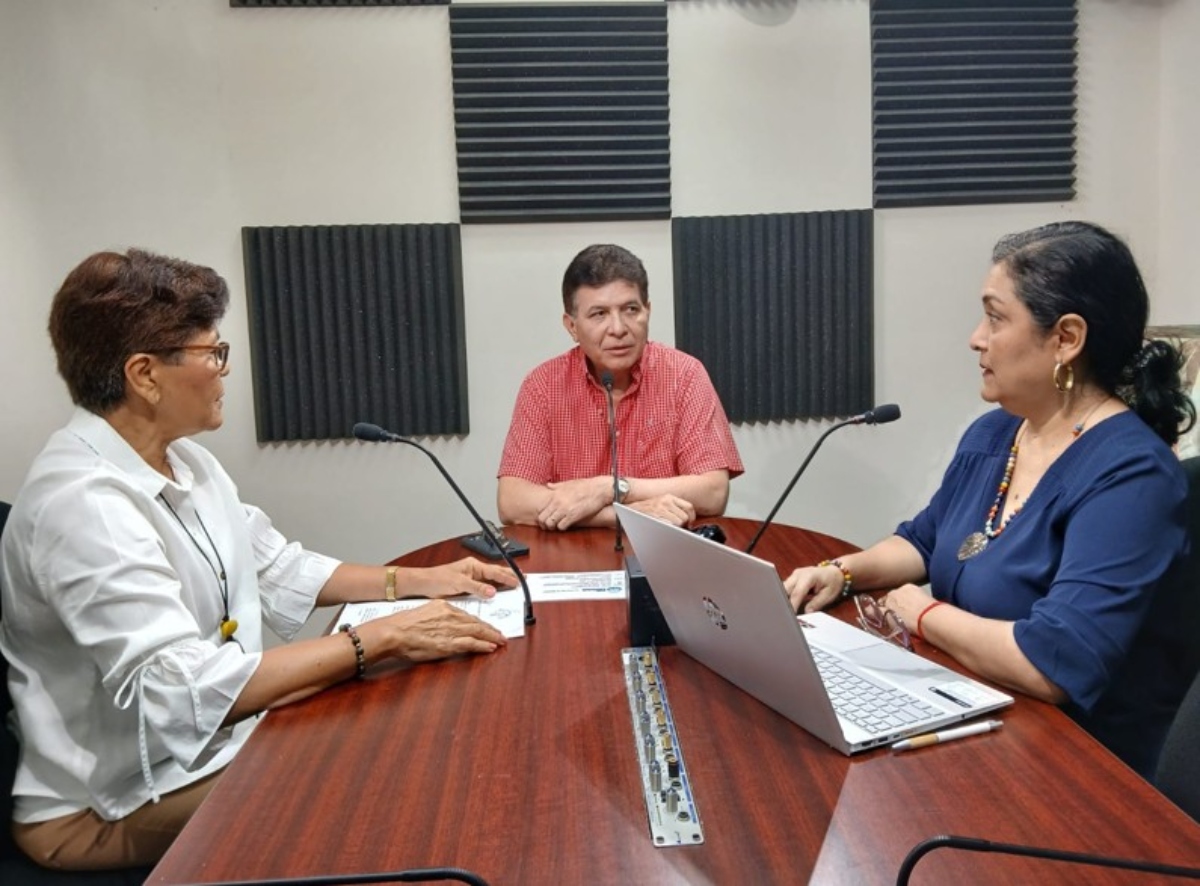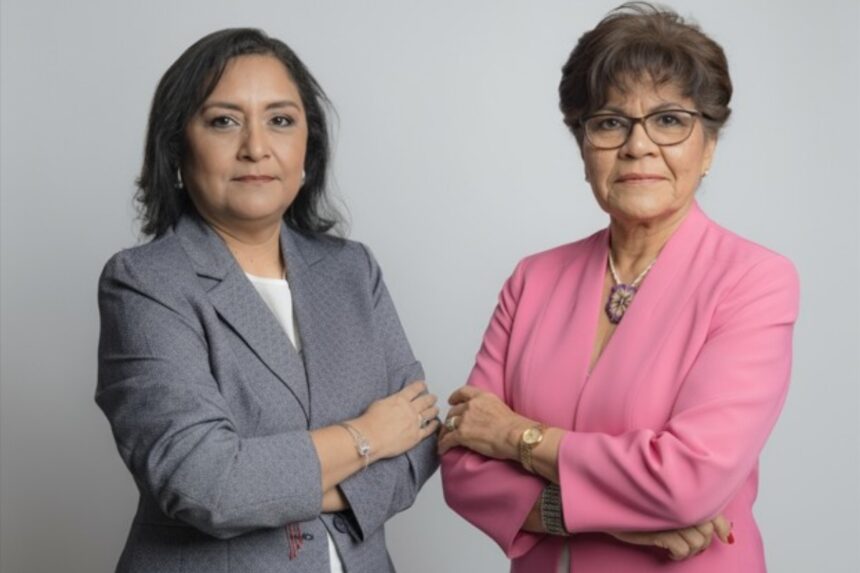A tu Salud Mujer Podcast emerges as a journalistic proposal led by journalists Flor Cogley and Flor Ortega, who in an interview explain that this new weekly space was born with a clear mission: to empower women with accurate, useful and validated by specialists information about health, physical and emotional well-being.
In each episode, the hosts and creators of this podcast address topics essential to the lives of Latinas in the United States, from mental health and nutrition to chronic disease, prevention and self-care. Using an interview format and an accessible approach, the journalists bring necessary and often neglected conversations to the table with the guidance of doctors, psychologists, therapists and health professionals.
Click on the photo to listen to the podcast

A tu Salud Mujer Podcast is available every Tuesday and also opens channels of direct dialogue with its audience through Instagram
and email atusaludmujerpodcast@gmail.com
How was the idea of creating A tu Salud Mujer Podcast born?
It was born as a proposal to provide accurate information about health, so that women can take responsibility for their own care.
The title A tu Salud Mujer Podcast, is an iconographic expression that symbolizes that moment when we raise our glass and toast ‘to your health woman’.
This toast carries the positive messages we want to convey to our audience.
What motivated them personally to focus on women’s health and wellness?
As journalists, we have learned how fragile women’s health is, in general terms, in our countries and how deficient the public health systems are.
In addition, women occupy a leading role in our Latin American societies; they have great responsibilities, not only in their jobs, but also in their families.
This motivated us to carry out this project as a way of putting our journalistic experience at the service of women’s health.
What does it mean to you to be journalists in the service of women’s welfare?
Journalism is always at the service of society, so using it as a tool for the greater good of women’s health and well-being, at all levels, gives us great satisfaction.
In addition, as women we also understand the doubts, concerns or lack of knowledge that women experience about some specific health issues.
Another fundamental reason, as journalists, we know how to verify the suitability of the sources, because our interest is to carry proven scientific information; this guarantees the reliability of each topic covered.
What kind of specialists do you collaborate with and how do you choose them?
We have prepared a somewhat extensive list of specialists in all topics, already programmed in advance.
A very important element in the planning of the episode is the choice of the guest and their training and experience is taken into account, as well as their desire to educate women on how to prevent disease, and thus care for and improve their health.
What issues do you consider a priority at this time for the integral health of women?
The priority issues, due to their high recurrence, are preventable chronic diseases, which impact the health and well-being of women, causing death or disability.
Especially because they can be avoided by practicing healthy habits.
Also, topics such as mental health, menopause and domestic violence, due to their great impact on the integral wellbeing of women, as well as endocrine problems that dominate the entire female body.
How do you address mental, physical and emotional health issues in your episodes?
The approach to all the topics leads us to inform ourselves beforehand, we consult international organizations such as the World Health Organization, the Pan American Health Organization, the International Federations of the different diseases, as well as the Research Centers of the different subjects.
For all topics, we study the profiles of the most suitable specialists to choose the guest, prepare scripts that we then analyze with the specialist before conducting the formal interview.
The approach is based on knowing the disorder or disease, the risk factors, how they impact health, how to prevent them, and what the woman can do to contain or manage the disease and reduce its impact on overall health.
These topics require a degree of sensitivity and respect when they are discussed in the podcast.
We have assessed the recommendations given by all specialists, referring to physical activities, as an appropriate resource to manage mental health.
Is there any topic that has surprised you because of the public’s response?
Each episode provides vital information in simple language for the audience and is well received.
However, the episodes dealing with cancer, diabetes and bone pathologies aroused great interest in the audience, due to their high didactic value.
What has been the most difficult part of undertaking this project as independent journalists?

With the dream of materializing the project also comes the cost variables involved.
We had everything ready to start, but we didn’t have the resources to pay for studio rental, editing, graphic designer, etc.
Fortunately, we have received the support of many people who saw in our project a valuable service, not only for women.
We have worked to maintain our independence, we guard the purpose that brought us here and we do not want to lose that north.
Producing a weekly podcast, as specialized as promoting comprehensive women’s health, is demanding, but we remain committed to this mission.
What have you learned about women’s health that you didn’t know when you started?
Interesting question. We learn every day. Most importantly, we have learned that a woman’s immune system is more robust than a man’s, but it is the one that is asked the most throughout her development, during the reproductive process and maturation (menopause).
Also, that women, as the main caregivers, postpone taking care of their health, not only physically, but emotionally, because they are dedicated to others.
But self-care is achieved as long as the woman understands that she must love herself first.
Any special moment or testimony that has marked you deeply?
When we had the first surgical oncologist, who introduced a new health alternative: Lifestyle Medicine.
A non-invasive modality, oriented to the care of patients, improving their inner being and everything that surrounds it.
We did not imagine that we would continue to hear from other invited specialists about this same alternative, which the doctors themselves describe as novel.
This, which seems a happy coincidence, has become, almost in the tonic that characterizes all the episodes.
In this way we leave the audience with a message that appeals to their own personal commitment, to improve their eating habits, the way they relate to others, to give value to nature to renew themselves, to exercise or physical activity and to the spiritual self that is in each one of us.
What is your dream with this project in the near future?
We dream of continuing to offer information with specialists who are knowledgeable and interested in helping to change the cure of diseases for prevention, so that women can stay healthy and enjoy their right to an authentic integral wellness.
To be able to increase our audience to have a more far-reaching impact.
What impact would you like to make on the lives of the Latina women who listen to you?
We would like Latin American women to become empowered in their self-care.
Recognize that they are important, valuable, and that they assume the leading role in their own health care, as a life purpose.
We also want them to take ownership of prevention as a means to avoid illnesses that could lead to death or leave them disabled, interrupting their productive life.
What’s more, we are already seeing these changes in women close to us.
And we are glad to know that many of them, after listening to an episode, decide to go to the doctor and give priority to their health.
That is our best reward for the work we do.
What message would you give today to a Hispanic woman who is not yet prioritizing her health?
We would tell them that taking responsibility for our health is a personal task; it cannot be delegated.
The body is one and is integral; a disease alters the whole system and sometimes leads to other ailments.
In order to continue the vital cycle of life, it is necessary to prevent; only then will we be well for the beings we love.
We would emphasize that it is not only about taking care of your physical health but also your mental and emotional health.
These cannot be separated.
What does the phrase “Taking care of yourself is also an act of self-love” mean to you?
Taking care of yourself is not a selfish act, as some may think.
Self-love is truly fundamental to lead a fulfilling life.
It is to value ourselves and know that our body and mind deserve care, which benefits us and also our loved ones.
Filed under: Interview A tu Salud Mujer Podcast














